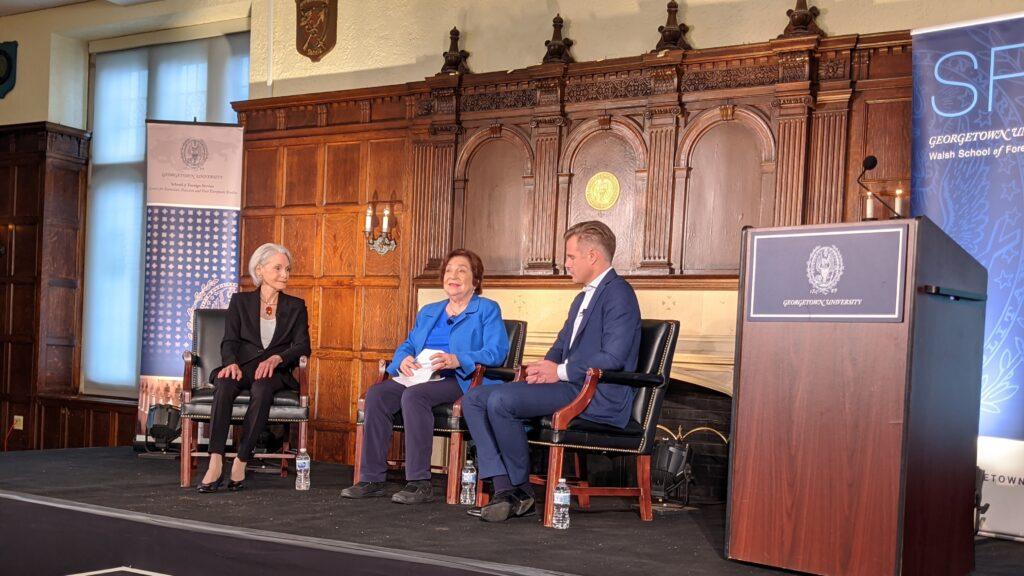Reporting on the ground in Ukraine about the Russian invasion reveals continued suffering and a lack of respite from Vladimir Putin’s unprovoked aggression, according to speakers at a March 24 event.
At the event, titled “Reporting from the Front Lines in Russia and Ukraine: A Conversation with CNN’s Jill Dougherty and Alex Marquardt,” Jill Dougherty, adjunct professor at Georgetown University’s Center for Eurasian, Russian and East European Studies (CERES) and former CNN Moscow bureau chief, and Alex Marquardt (SFS ’04), CNN senior national security correspondent, discussed their past experience reporting on the ground in Russia and Ukraine.
Georgetown’s Walsh School of Foreign Service (SFS), CERES and the Carnegie Corporation of New York hosted the event.
Russian president Vladimir Putin launched a full-scale attack on Ukraine on Feb. 24, prompting the biggest military conflict in Europe since World War II. The unprovoked invasion has led to a refugee crisis, with 3.6 million people in Ukraine fleeing to other countries and 6.5 million people displaced within Ukraine.

Marquardt said reporting on personal stories about real people is impactful because it shows the world what is actually taking place on a human level.
“It’s the toughest thing you can do. You are meeting people on the worst day of their life, and it’s very difficult to go up to someone on the worst day of their life and say, ‘Tell me how bad it is, and tell me how you’re feeling, and tell me what you’re going to do next,’” Marquardt said. “It can feel like you’re preying on someone.”
“But you have to remember that that story is hopefully going to have a far reaching impact and is going to help our audience understand what is truly going on in Ukraine,” he continued.
By spreading disinformation and propaganda, Putin’s regime makes it difficult for people both inside and outside of Russia to access accurate reporting and discern what is true, according to Dougherty.
“People were getting information and communication from the rest of the world on a relatively free basis and now Putin wants a sovereign internet which he can just flip off like a switch, and to me that is really terrible,” Dougherty said. “Russia — to a certain extent — is dying. The country will be losing the best and the brightest people.”
Russia continues to be the largest producer of disinformation on social media and is the source of the most fake and misleading Facebook accounts, according to a May 2021 report from Facebook, which discovered Russian disinformation campaigns in more than 50 countries since 2017.
Putin signed a law March 4 that punishes journalists who deviate beyond the Kremlin’s permitted talking points about the events in Ukraine with 15 years in prison. Additionally, Russian officials have blocked access to certain outside information about the conflict.
The responsibility of journalists is to inform the public of the truth during crises to bring about appropriate action and solutions from the international community, according to Marquardt.
“In the early days of a conflict, when people feel like they are the victims, people are eager to get their story out,” Marquardt said. “Then there are others who are going through so much and are traumatized that they don’t want to talk to you, and that is perfectly understandable. You have to navigate that gingerly and respectfully. It was just devastating — and it is very difficult — but again it’s not about you; your job is to get the story out there, and hopefully it will have an impact.”




















